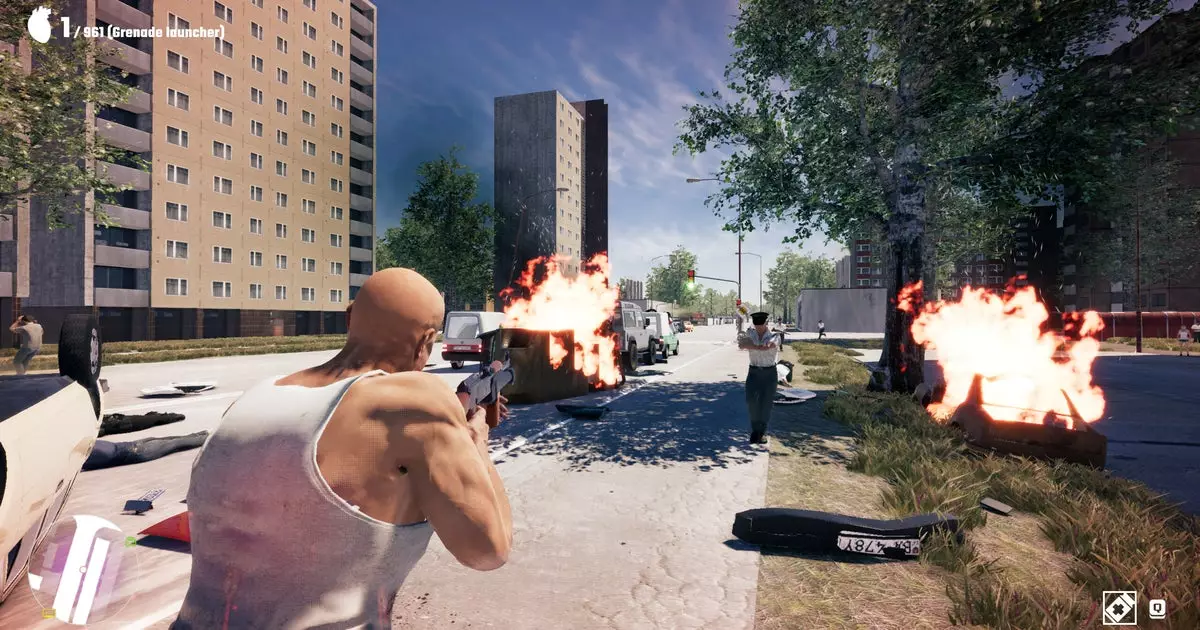After spending considerable time with Vivat Slovakia’s early access build, it has become evident that this open-world game, while intriguing, may fall short of the monumental expectations set against titans like Grand Theft Auto VI. The excitement surrounding such games can often lead to inflated hopes, and in this case, Vivat Slovakia emerges more as a homage than a challenger to the throne. This article aims to unravel the layers of Vivat Slovakia, exploring its strengths and shortcomings while providing a comprehensive overview of what it offers.
Vivat Slovakia sets itself in the troubled backdrop of 1990s Slovakia, a time characterized by upheaval and political corruption. However, its ambition is palpable, echoing themes and gameplay mechanics that are unmistakably reminiscent of the Grand Theft Auto series. From its stylistic choices, including visual fonts and overarching narratives, Vivat Slovakia presents itself as an earnest tribute to a genre that has long been dominated by towering figures. Yet, while this ambition is commendable, it often feels like that of an enthusiastic apprentice overshadowed by the master.
The protagonist, Trotter, offers a convoluted blend of characteristics that results in a rather unlikable portrayal of an undercover cop disguised as a taxi driver. The dialogue in initial missions sets a dark tone, with instances of corruption and seedy implications woven into casual conversations. While the effort to inject real-world grittiness is admirable, the character development feels somewhat lacking. The player’s first interaction with Trotter reveals a world that, while richly textured, can quickly become repulsive. The game’s approach to humor and seriousness is polarizing, oscillating between intrigue and distaste.
As players embark on their journey through this murky landscape, the reality of gameplay reveals a blend of creativity and derivative mechanics. Vivat Slovakia features multiple radio stations, a quintessential element of open-world games that adds a rhythmic pulse to the driving experience. However, it is easy to sense a lack of originality within the implementation. The thought of a protagonist learning to navigate the streets through taxi work is a familiar trope, perhaps better executed in prior games.
One notable aspect is the reactive nature of the game’s environment. The car’s headlights respond dynamically to destruction, elevating immersion, while multiple passenger interactions add subtle layers of gameplay. Nevertheless, these mechanics, while interesting, often feel like they’re borrowing heavily from established norms. The bizarre tutorial that introduces sniper mechanics is both a bold move and a questionable choice that, albeit darkly humorous, begs scrutiny—for its tastelessness masks some of the innovation it ostensibly aims to showcase.
At its core, Vivat Slovakia attempts to weave a narrative that is both engaging and reflective of actual historical tensions. The complexities of loyalty and corruption serve as a compelling canvas on which players navigate their quests. This backdrop not only enriches the experience but provides a rich ground for plot development replete with moral dilemmas.
Despite the game’s grand narrative aspirations, the execution sometimes falters in delivering a satisfying emotional experience. Missions that reference real historical events risk trivializing serious subjects, leading players through a landscape of moral ambiguity without fully grasping the weight of their actions. While the professional voice acting enhances immersion, it does little to resolve the underlying juxtaposition of the game’s dark humor against its serious themes.
Vivat Slovakia presents a compelling yet flawed endeavor that, despite its shortcomings, deserves recognition for its ambition. It is not the revolutionary experience that could have rivaled major titles, but rather a flawed tribute that encapsulates both the grit and allure of the era it represents. The developers’ pursuit of innovation amidst limitations showcases both the struggles of independence in gaming and the timelessness of storytelling. Future updates and iterations may well sharpen its focus, potentially allowing it to carve out a niche of its own in a crowded gaming landscape. Ultimately, while it may not be a GTA killer, Vivat Slovakia invites players to experience an underexplored narrative at the intersection of history and fiction.

